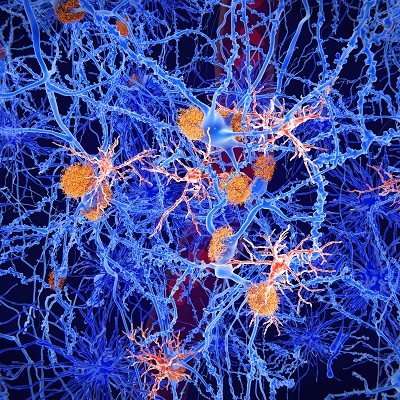August 19, 2022 -- Massachusetts Institute of Technology (MIT) scientists have discovered that Alzheimer’s disease disrupts at least one form of visual memory by degrading a newly identified circuit that connects the vision processing centers of each brain hemisphere.
The results of their study, published on August 19 in the journal Neuron, are based on mice experiments. However, the researchers contend they provide a physiological and mechanistic basis for prior observations in human patients and that the degree of diminished brain rhythm synchrony between counterpart regions in each hemisphere correlates with the clinical severity of dementia.
Researchers identified neurons that connect the primary visual cortex of each hemisphere and showed that when the cells are disrupted brain rhythm synchrony becomes reduced. They looked at the activity of the cells in two different Alzheimer's mouse models and found that cross-hemispheric neuron cell activity was significantly lessened amid the disease and that Alzheimer's mice fared much poorer in novelty discrimination tasks.
"We demonstrate that there is a functional circuit that can explain this phenomenon," lead author Chinnakkaruppan Adaikkan, a former postdoc at MIT's Picower Institute for Learning and Memory who is now an assistant professor at the Centre for Brain Research at the Indian Institute of Science, said in a statement. "In a way we uncovered a fundamental biology that was not known before."
Copyright © 2022 scienceboard.net









